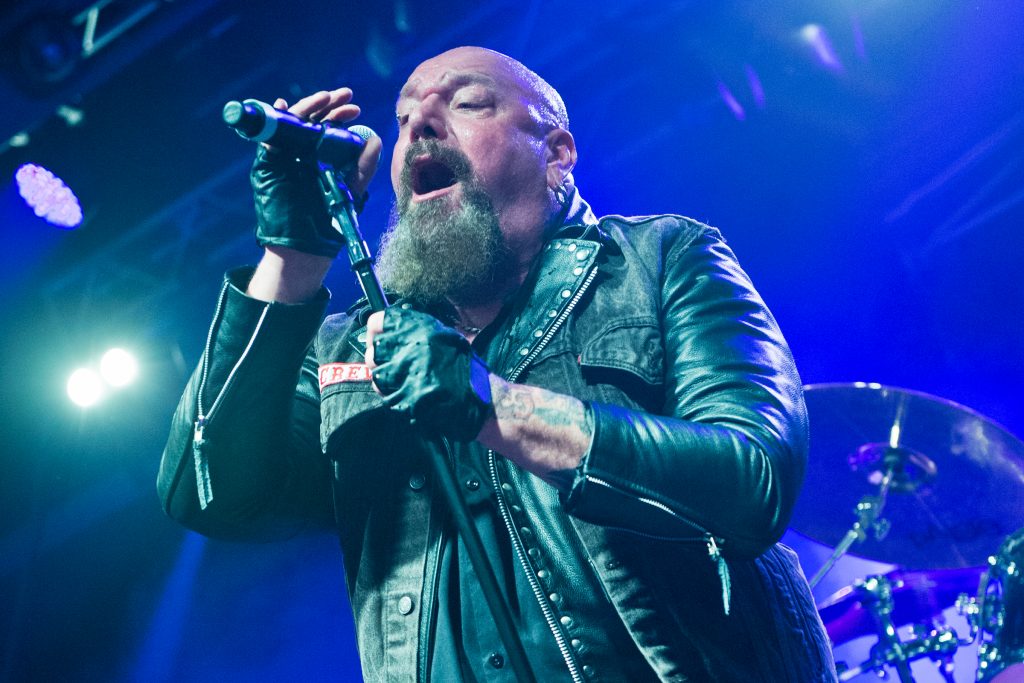(ThyBlackMan.com) The longer a band is around, the more likely it is that members will be replaced. It’s very rare that the founding line-up, the classic line-up, and the current line-up are all in tact unless it’s a younger band.
Sometimes a member is replaced because their sound or playing just no longer fits the band’s direction. Other times, the band member might be problematic and they have to go.
There are tons of reasons for founding members to be booted. Let’s look at five former members who are overlooked or underappreciated in influential metal bands.
Al Atkins (Judas Priest)
Of the musicians on this list, Al Atkins is probably the most significant. He was the original lead singer and co-founder of Judas Priest before Rob Halford took over front man duties.
Rarely is there a case where a replaced band member results in a massive “What if” scenario. Halford has been cemented as part of Judas Priest’s classic line-up and is a part of the band’s current line-up.
Atkins was with the band from 1970 until 1973 when he was forced to find a full-time job to support his family. What if Judas Priest took off sooner?
Would Rob Halford have ever become the Metal God? What of Judas Priest’s success? How far would the band have gone with Atkins as front man?
While I’ve come to appreciate Atkins’ version of “Victim of Changes” and “Dreamer Deceiver”, I don’t know how far he could’ve taken the band, really. On that note, I don’t know how his vocals would’ve meshed with the sci-fi orientation of Glenn Tipton’s songwriting.
Paul Di’Anno (Iron Maiden)
While Al Atkins is the greatest “What if” on this list, Paul Di’Anno is definitely a favorite. Iron Maiden was a part of the New Wave of British Heavy Metal which saw a number of bands throw hard rock, classic heavy metal, blues rock, and late 70s UK punk into a pot and create a spectrum of heavy sounds.
Di’Anno had a punkish approach to his singing and stagecraft. His performance on the self-titled debut is probably my favorite in the band’s catalog. He gave Iron Maiden this dangerous edge.
Unfortunately, it was a direction that co-founders weren’t feeling. It also didn’t help that Di’Anno had his own demons at a time Harris was looking to make something of the band.

Guy Speranza (Riot)
Speranza was always a curiosity to me. Here we had a guy with an amazing voice for 70s hard rock who could’ve gone far in 80s metal.
He co-founded the New York City power metal band Riot in 1975. The band started out as an energetic but pretty basic hard rock band. It began to really form its own identity when it transitioned into speed metal.
Fire Down Under dropped in 1981 and featured a lot of late 70s speed metal and pretty standard heavy metal but it was an amazing mix. This would be the last of three albums Guy Speranza sang on with Riot before retiring to become an exterminator.
While his voice didn’t have much progression between 1979’s Narita and Fire Down Under, his voice was perfect for the band’s direction at this time. It’s just weird how he totally disappeared from metal.
If you look up his Metal Archives profile, it’s just his work with Riot. He’s not as big of a “What if” as Al Atkins but he’s still a notable “What if”.
Blaze Bayley (Iron Maiden)
Originally, I was going to put Tim “Ripper” Owens in this spot for his time with Judas Priest but Ripper is still appreciated for his work with Iced Earth and I dug the hell out of him in Yngwie Malmsteen’s band.
Blaze doesn’t get derided for his time with Iron Maiden between 1994 and 1999 but he’s a vocalist who is mainly only brought up to discuss that period in Iron Maiden.
The thing is that Blaze Bayley consistently delivers as a vocalist. Both of his solo projects have solid-to-great albums and his work with Wolfsbane is good.
Overall, he’s a great singer who stays busy. This leads me to believe it’s not so much him but his projects just don’t hit like his Iron Maiden work for some listeners—which is a shame.
I’m not saying his material is the best of any released lead singer but he keeps a respectable level of quality with any project he’s involved in. Either the band plays around his singing or he finds a good match for singing but it’s usually at least solid release with some quality stuff on it.
Clive Archer (Venom)
Co-founder and current/classic line-up Venom lead singer—and bass player—Cronos has a distinct voice. It’s like a more evil, punkish version of Lemmy of Motorhead.
However, before Cronos took over the vocal duties, Clive “Jesus Christ” Archer was the band’s front man and had a singing voice identical to Cronos’.
I find this strange because you can only hear him on the first two demos from 1980. After that, this guy totally disappears from existence.
He formed the band with Cronos, Abaddon, Mantas, and Alan Winston but like Winston, he just vanished off the face of the planet. Whenever I look up the band to read into the act’s history, his name is there and gone.
Like Guy Speranza, there’s nothing on him playing in other bands and this was a prime period for Archer to continue his career as the New Wave of Heavy Metal in England was about to really kick off in the early 1980s.
Staff Writer; M. Swift
This talented writer is also a podcast host, and comic book fan who loves all things old school. One may also find him on Twitter at; metalswift.

















Leave a Reply